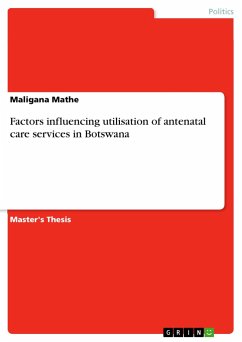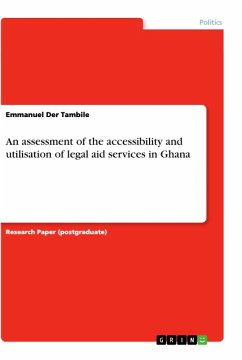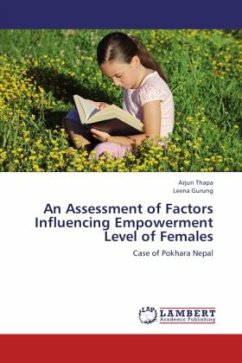Master's Thesis from the year 2014 in the subject Politics - International Politics - Region: Africa, , language: English, abstract: This study was based on secondary data from BOTSWANA FAMILY HEALTH SURVEY of 2007 (BFHS, 2007). This research draws its findings from a population of women aged between 15 and 49, who have ever been pregnant and have had a child prior to the survey. Those within the age range who were not pregnant and had not had a baby two years before the survey were left out since to go for antenatal clinic one should have had a child or was pregnant by then. Basically the study focused on women who have ever been pregnant and /or those who have ever had a live birth.The objectives of the study are to examine the factors that influence the use of antenatal care services in Botswana. The results, show that education, place of residence and marital status of the respondent were strongly associated with use or none use of antenatal care. Use of antenatal care services is not only associated with a number of attendances to antenatal care services, socio-economic factors but also associated with the way antenatal care is implemented. It was also observed that those women in urban areas largely attended antenatal check-up in the early stages of pregnancy. On adequate attendance, women in urban areas also showed to have received adequate antenatal check-up compared to those women in rural areas. In the case of usage of antenatal care, there was no significant urban-rural gap between rural and urban areas probably is because the health system in Botswana.The results indicate that antenatal care services are widely used in Botswana, with the over 90 percent of mothers seeking antenatal care from health professionals during pregnancy. The choice of antenatal care provider was also associated with the education of the mother (sig. = 0.000), place of residence (sig. = 0.003) and marital status (sig. = 0.000) as shown by the Chi-square values of women who used antenatal care services. For instance urban dwellers showed more usage of antenatal care compared to those in rural areas. The results showed that women from rural areas had less probability of seeking antenatal care from a doctor when compared to the women from urban areas. This has to do with the allocation of resources, which is much influenced by the pyramidal nature of the health care delivery system in Botswana.
Hinweis: Dieser Artikel kann nur an eine deutsche Lieferadresse ausgeliefert werden.
Hinweis: Dieser Artikel kann nur an eine deutsche Lieferadresse ausgeliefert werden.








